 A combi boiler provides heating and hot water directly from the boiler.
A combi boiler provides heating and hot water directly from the boiler. Here’s an example of a central heating and hot water system layout using a combi boiler:
A combi (or combination) boiler is an ingenious space-saving idea, and an increasingly popular choice in UK homes. In fact, combis now account for well over half of all the new domestic boilers installed in Britain every year.
A combi boiler is both a high-efficiency water heater and a central heating boiler, combined (hence the name) within one compact unit. Therefore, no separate hot water cylinder is required, offering space saving within the property.
Further benefits of a combi boiler are significant savings on hot water costs and the fact that hot water is delivered through your taps or shower at mains pressure. So you can enjoy powerful showering without the need for a pump.
Another combi boiler benefit is that it can generally save you money on installation time and costs, since no tank in the roof space means less pipe work and a shorter installation time. Combi Boilers such as the Worcester Greenstar 24i Junior 100280 Combi Boiler offer up to 90.1% efficiency and boast a grade A efficiency rating and gives a maximum heat output of 24kW to the central heating system and offers instant hot water as well as a keep hot feature.
Combi Boilers such as the Worcester Greenstar 24i Junior 100280 Combi Boiler offer up to 90.1% efficiency and boast a grade A efficiency rating and gives a maximum heat output of 24kW to the central heating system and offers instant hot water as well as a keep hot feature.Ideal for smaller homes and apartments the 24i Junior offers 9.8 litres per minute of hot water at 35 degrees. It also boasts highly flexible flue options and a wall-mounting frame to hide the unsightly pipework.
It also boasts a variety of control options ranging from the basic mechanical to the all-singing, all dancing digistal that features automatic daylight savings time adjustment, 24 hour functionality as well as a programmable room thermostat to accurately control the temperature of the house.
And a recent survey revealed that 9 out of 10 professional installers would choose Worcester for their own homes*. All of which gives you the reassurance of knowing that when you invest in a
Worcester product, its quality is endorsed by the professionals.
As domestic boilers currently account for 21%* of the UK’s total CO2 emissions, the fact that a Worcester condensing boiler also delivers dramatically reduced emissions of both CO2 and NOx (Nitrogen Oxide) helps in the battle against climate change. All Worcester Greenstar boilers are within class 5 – the lowest of the 5 categories – for NOx emissions.




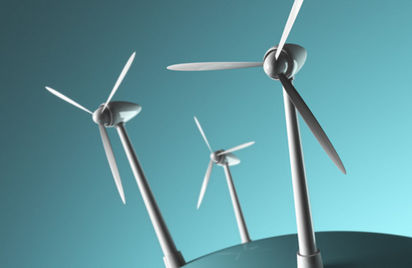




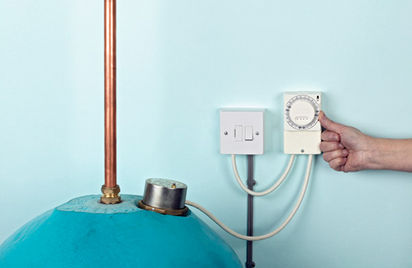

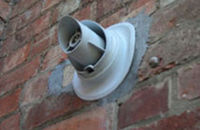
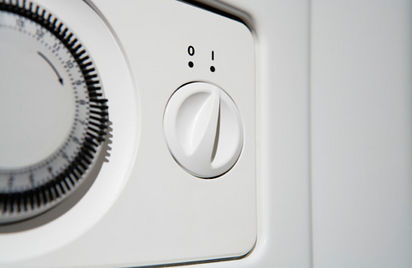

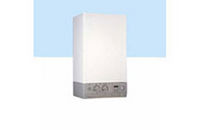
 more than one to control different areas of the house (e.g. upstairs and downstairs boilers) so that the performance is improved by allowing more hot water around the household and greater control of the temperatures, also in case one boiler breaks down the other can take over.
more than one to control different areas of the house (e.g. upstairs and downstairs boilers) so that the performance is improved by allowing more hot water around the household and greater control of the temperatures, also in case one boiler breaks down the other can take over. The Greenstar Highflow 550CDi is an equally powerful combi boiler but is unique in the fact that is a floor mounted boiler so that you can easily slide it into place using the wheels and also keeps installations costs down by not having to buy wall fixing plates or any extra piping. Worcester have made their boilers flexible when they are being sited so that you can really choose where you want it! Combi boilers account for over half of the UK’s boilers and are still growing in popularity, Worcester’s boilers can be purchased at low prices from Fireplace Megastore.
The Greenstar Highflow 550CDi is an equally powerful combi boiler but is unique in the fact that is a floor mounted boiler so that you can easily slide it into place using the wheels and also keeps installations costs down by not having to buy wall fixing plates or any extra piping. Worcester have made their boilers flexible when they are being sited so that you can really choose where you want it! Combi boilers account for over half of the UK’s boilers and are still growing in popularity, Worcester’s boilers can be purchased at low prices from Fireplace Megastore. The advantages of a system boiler over a regular boiler are that a system boiler already has the majority of components built in which will save on installation time and costs. A system boiler also pumps the hot water through the system to the radiators and to the cylinder which results in a faster response and more economical running costs.
The advantages of a system boiler over a regular boiler are that a system boiler already has the majority of components built in which will save on installation time and costs. A system boiler also pumps the hot water through the system to the radiators and to the cylinder which results in a faster response and more economical running costs.